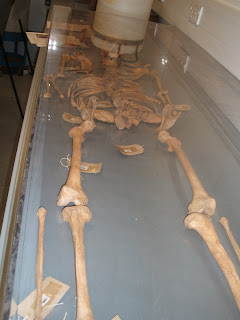



Any writer of contemporary crime fiction needs to have some know-how about forensic science. It may not form the heart of the novel (in fact, personally I prefer novels where the author’s knowledge of forensic science is worn lightly) but it’s important to try to avoid crass errors, and this means doing your research.
One of the enjoyable features of the CWA annual conference was a visit to Lincoln University’s state of the art forensic science facilities. A team of experts was on hand to give us valuable insights into a wide variety of aspects of their work – ranging from forensic entomology, through dating dug-up bones, to sample crime scenes with blood spatter evidence.
The experts were friendly as well as informative, and at dinner that same evening I had the pleasure of sitting next to Dr Dorothy Gennard, one of the UK’s five forensic entomologists. Her enthusiasm for her work was palpable and she proved a very agreeable companion.
My Lake District books usually include some forensic science detail – The Arsenic Labyrinth is a particular example – and there can be few pleasanter ways of researching a sometimes dark topic than that offered by the trip to Lincoln University.
Oh, now I can hardly wait to read The Arsenic Labyrinth. I really enjoy novels with some information about forensics. In fact crime is the only way I am able to learn and understand anything about science, but when there is a nice murder in it, I always understand.
ReplyDeleteAnd honestly, if I could choose between going to The Tickled Trout with Daniel Kind, or look at old skeletons together with you, I´m not sure Daniel would stand much of a chance. But don´t tell him.
I prefer your other pics from Lincoln (especially over breakfast!) but completely agree about the importance of getting the forensics right. My preference is for novels strong on character, motive and atmosphere – I can watch The Bill for realistic policework or google up factual data – but howlers, forensic or otherwise, can wreck an otherwise excellent read.
ReplyDeleteWhat a strange thing it is, though, this suspension of disbelief, the way we can willingly swallow huge implausibilities (Morse and Lewis’ working methods), even the downright ludicrous (the Midsomer murder rate!), but cannot tolerate errors of detail any more than a crooked picture. No doubt you’ve written on this somewhere, but if not…just a thought.
Thanks, Dorte - and good to meet you today, Paul!
ReplyDelete